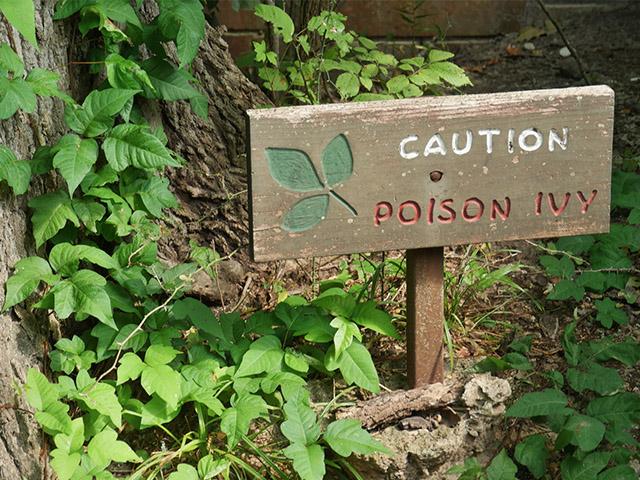If It Comes in Threes
Now the deeds of the flesh are evident, which are: immorality, impurity, sensuality, idolatry, sorcery, enmities, strife, jealousy, outbursts of anger, disputes, dissensions, factions, envying, drunkenness, carousing, and things like these, of which I forewarn you, just as I have forewarned you, that those who practice such things will not inherit the kingdom of God. (Galatians 5:19-21 NASB).
As I write this piece, it’s the spring of the year when our gardens start to blossom. Along with the beautiful flowers are the nimesis, the weeds. Among them are poisonous vines, either ivy or oak. These plants are three-leaf in form, and so goes the saying, if it comes in threes, leave it be.
There are also three things the Bible says grow out of our flesh — namely jealousy, envy, and strife. For our spiritual health, these three should also be avoided.
In recent years, due to some sickness and the oppressive summer heat and humidity, we have not maintained our flower beds like we should have. My wife loves to garden. Me, not so much. But I love my wife, so I try to help her with this chore.
One day last week, we waded into this unpleasant but necessary task. As we started to pull the weeds, we remembered something we had learned from previous years — if you do not pull weeds out by the root, in a few months they will be right back.
This reminded me that the three works of the flesh — jealousy, envy and strife — have a root source, pride. Thomas Aquinas thought pride was the cause of every other sin. It lurks under the surface like roots of weeds, sprouting into these three divisive characteristics. If pride is not dealt with, it won’t be long before our spiritual garden needs to be weeded again.
Knowing that we had poisonous plants in our garden, we took a proactive approach. We clothed ourselves from head to toe to protect against the oil from poisonous plants. Much the same strategy will guard us against jealousy and envy. Watch for thoughts or words that compare you with what others have or can do.
C.S. Lewis once said, “Pride gets no pleasure out of having something, only out of having more of it than the next man ... It is comparison that makes you proud.” Comparison is the fertilizer that makes our emotions mushroom into jealousy and envy.
I also noticed that the poisonous plants were primarily vines running close to the ground. They were often obscured from sight by the leaves and blossoms of the flowers.
Such is the case with jealousy and envy. They are hidden by pleasant things such as flattery. We don’t realize the intent of words or suggestions because they are wrapped with things that make us feel good about ourselves. They appeal to our pride — the root of all of our problems.
The oil from a poisonous plant does not always show up immediately as a rash. It can take a week or two for the skin irritation to the surface.
It is much the same with jealousy and envy, the outward manifestation that can warn us is often delayed. If thoughts that provoke these devilish characteristics are not challenged, by the time they surface they can be ingrained in our emotions and thinking.
Finally, after a long day, we were finished. We took off our clothes and put them in the wash and jumped straight into the shower. As the old saying goes, an ounce of prevention is worth a pound of cure.
As the Bible says, we take captive every thought to make it obedient to Christ (2 Corinthians 10:5 (b)). If we do not take our thoughts captive, they will capture us.
If we see jealousy, envy and strife, these devilish three, let them be.
Copyright © June 2018 Ken Barnes, used with permission.
Can God change your life?
God has made it possible for you to know Him and experience an amazing change in your own life. Discover how you can find peace with God. You can also send us your prayer requests.
We encourage users who wish to comment on our material to do so through our CBN Facebook page.






